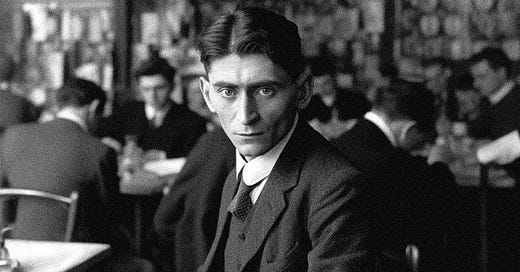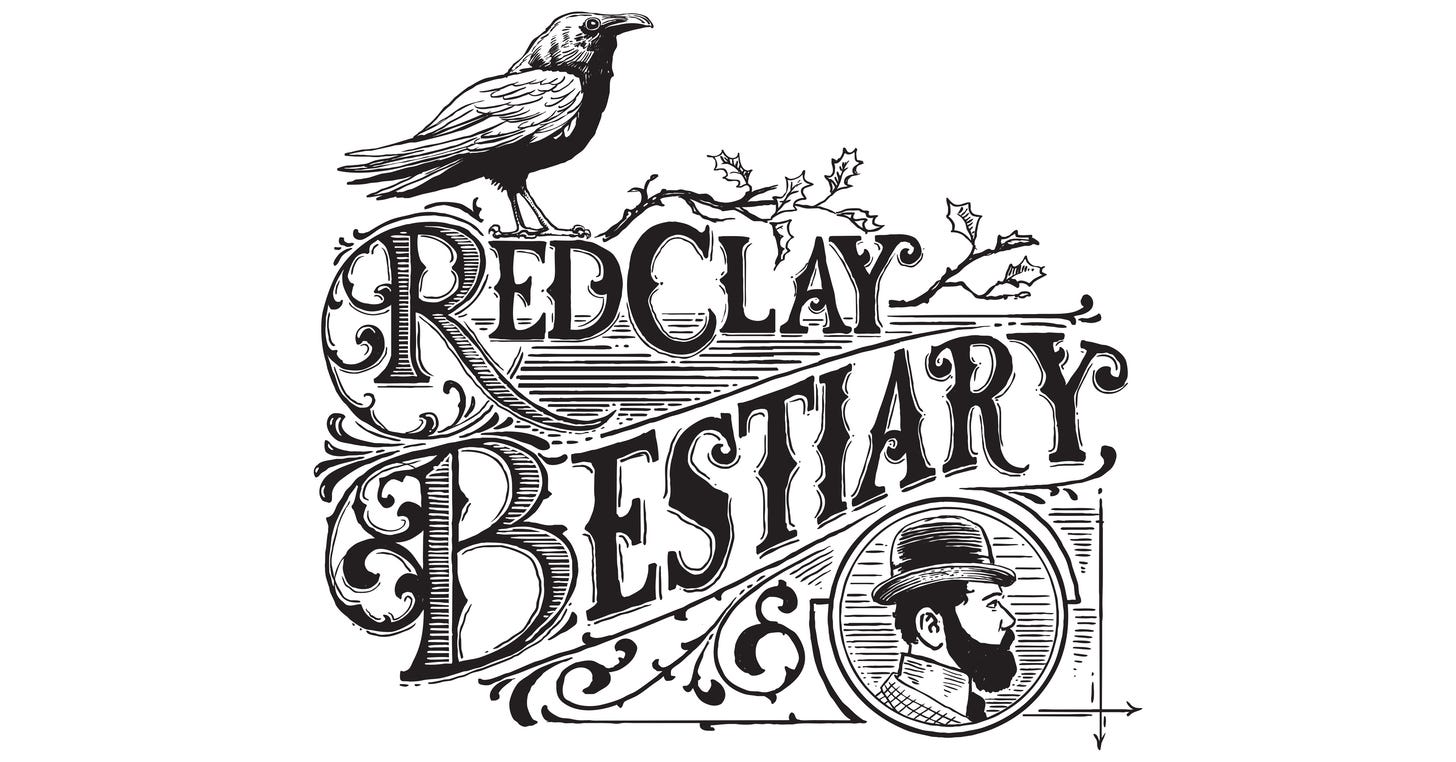The stream of powerful omens of late must really be giving warlocks and alchemists a warm tingly feeling. The fight over whether or not flags should be flown at half-staff on inauguration day was petty and grotesque, but Carter going and dying within the time-frame that would make it a question was either some real Obi Wan shit or evidence of divine judgement. The collision of MLK Day with what looks suspiciously like our republic’s Ides of March was another unexpected planetary alignment. I’m not an idiot—I know these are coincidences. So was Caesar’s comet. “When beggars die there are no comets seen; The heavens themselves blaze forth the death of princes.” So said Calpurnia, at least according to Shakespeare, who wasn’t actually there.
Humans are connection machines, so if it wasn’t these things bubbling to the top of our collective consciousness it would be something else. I know I’ve been industriously making connections in my own life. To wit: Owing to the vagaries of international shipping I’ve been hung up in my attempt to scale a ten-novel German-language series about a detective plying his trade in the late Weimar Republic, and in the lacuna I picked up Franz Kafka’s “The Metamorphosis,” which, if you don’t remember or—God forbid—you haven’t read it, tells the story of Gregor Samsa, a traveling salesman who wakes up one morning to find himself turned into a giant insect.1
It’s a brilliant story, darkly funny. Gregor can never quite let go his work responsibilities, and the reader is treated to long, winding passages describing his mostly futile attempts to get out of bed, turn over, reach the door, all rendered in the kind of exacting, painful detail one expects from a building blueprint. Gregor’s inability to control his multitudinous, flailing legs and the strange pains that surface in various parts of his unfamiliar body combine to form a horrifying picture, but inflicted with these surreal circumstances Gregor cannot excise from his mind the banalities of his life and can only think of making the next train to work.
Three years now I’ve spent struggling to elevate my German to the point I can read stuff like this, and I can now tell you definitively that whatever humor one may find in Gregor’s ridiculous situation, it is multiplied tenfold by the language’s crisp, slide-rule precision. Was it worth the effort? Well yeah, kinda. Nobody can tell me Germans aren’t funny.
Of course, Kafka wasn’t, strictly speaking, German. He was a German-speaking Jew living in Prague during the bitter last days of the Austro-Hungarian Empire. What I know about Kafka could probably fit on a postage stamp at a legible font size, but it doesn’t take Sigmund Freud to conclude that this man, whose passion for writing was eclipsed by both his own insecurity and a full-time job selling insurance, embodied the alienation that runs through his work like a vein of black ore.
“The Metamorphosis” was published in 1915, not long after the start of the Great War which would erase Kafka’s country from the map of Europe within three years. It’s easy enough to read the story as a parable of the age, and though the dates don’t quite line up it wouldn’t be a stretch to assume that Kafka, who was already a stranger in his own land—doubly so—had a sense for what was coming. In any event, I can’t help but see the story as a mirror. I too have awoken from uneasy dreams to find, well, not myself, but my country turned into a giant cockroach.
And therein lies the reason we read books. It’s easy enough to commune with others as to the sort of everyday horrors like the way your phone persistently corrects you when you’re mispeling things to be funny or how you’re always leaving your coffee places and when you can’t find it you make another cup and then you find the first one and feel like an oaf trying to double-fist coffee. It’s the rarer, more extreme violations that leave us feeling adrift. I remember being struck, at the beginning of the pandemic, by the fact that practically everyone on earth was weathering the same storm, that there was nowhere any of us could go to escape, and that almost none of us had any prior experience with pandemics. Almost all eight billion of us were plague virgins.
Who do you turn to when you suddenly need to know something about living under threat of a deadly disease? Easy: Daniel Defoe, A Journal of the Year of the Plague (1720). Edgar Allen Poe, The Masque of the Red Death. Albert Camus, The Plague (1947). Und so weiter, as the Germans say.
The truth is that our current predicament is, in historical terms, about as original as a soap opera. Tyranny is one of the top genres of national ailments, right up there with ecological collapse and annihilation by a newly encountered civilization. At least we don’t have to worry about that last one. Right?2
We live amidst the ruins of stories just like ours. Two hundred fifty years ago we were just a far-flung colonial outpost of the British empire, which in its turn had once long before been a far-flung colonial outpost of the Roman empire. There’s something almost depressingly organic about the cycles of rise and fall, insofar as they offer an ironclad guarantee that we don’t get to simply have peace and stability forever. But then again, maybe civilizations are like organisms, and the ones that aren’t cutting it any longer have to change or die to make room for something else.
Does this mean we’re all going to die? Well, no, probably not. The future of the United States is very much in question, but what is the United States anyway? It’s a specific nation we’ve built upon an idea of a United States—one I think we all (or most of us) once shared, or at least it felt that way on Independence Day in the golden year 1976—that we would be a country established on a particular set of rational principles encompassing freedom, equality, democracy and rule of law. It’s a lovely ideal, often sharply at odds with the concrete country it was supposed to inform, but it was the striving toward that ideal that really made us who we have been, and that striving cannot be quenched by a madman with a magic marker.
I think often about the fact that the part of the U.S. that I call home, and that has been my home for most of my checkered3 life, has seen slavery—the actual enslavement of other human beings4—and Jim Crow, and lynchings and a bloody civil war which reached places only a short walk from my house. I think about the fact that this hideous business was still going on when I was a kid watching guys in white robes and pointy hats milling around at fiddlers’ conventions in places like Mooresville, Alabama. It’s subtler today, but ugly-minded folks always find a way to get their licks in. Point is, it can be embarrassing being from the South.
But, the South is also where Martin Luther King came from. And John Lewis. Ralph David Abernathy and a host of other justice warriors. This is the other side of our legacy, and it’s curious and tragic and glorious that they are permanently alloyed to America’s primal sin, giving strength to a very weak joint. Also in consequence of our history we reaped a surfeit of great writers and musicians, which would be too beautiful a gift for such an ethically muddled people were it not for the redemption inherent in it. It is an antibody to our great national infection.
That redemption is the cream of the American experiment; the one true, unstained Good to which we can proudly lay claim. And here’s the great thing: unlike a fort, or a city, or an army, it cannot be conquered, cannot be soiled, cannot be expunged. It’s an idea, and we can carry it forward whether or not the next polity in our lives happens to be called the United States of America or the Commonwealth of Massachusetts or the Republic of California. You can even carry it to the Democratic People’s Republic of Florida.
The autumn of 1918 must have been a very strange one for Franz Kafka. His nation was dissolving slowly in the daily news like a chunk of ice in a cup of coffee. On the evening of October 17 he went to sleep in Austria-Hungary for the last time, and woke the following day, in a peculiar parallel to his fictional antecedent, not in a different body but a different place, similar in appearance but now called Czechoslovakia. And however upsetting this may have been, Kafka kept going to work, kept writing.
Empires come and go. It is a pity but we mustn’t become so fixated on what we’ve lost that we lose sight of what we still have. And this is what bothers me most about the seeming surrender of the resistance as Trump II: The Shittening rolls out its first flatulent scenes. However many levers of power the man gets his fat little hands on, there’s really nothing he can do to prevent tens of millions of people rowing the other direction, if we choose to do so. We must strive, as countless people have striven before, to aid one another, to preserve what we can, to restore what we can, to build anew, and to write our story for future generations.
Take care, friends.
The exact word Kafka chose was “Ungeziefer”—vermin. Which I gather, thanks to Adolf Hitler, is pretty much the German equivalent of the n-word.
Checkered in the sense of where it is I am actually from. I generally tell people I’m from the U.S Army.
We’ve heard it all our lives and tend to become inured, but an small inner act of will can bring home the horror of it any time we choose.





Beautiful. Much-needed. Thank you for writing this.
"Er lag auf seinem panzerartig harten Rücken und sah, wenn er den Kopf ein wenig hob, seinen gewölbten, braunen, von bogenförmigen Versteifungen geteilten Bauch, auf dessen Höhe sich die Bettdecke, zum gänzlichen Niedergleiten bereit, kaum noch erhalten konnte."
(Franz Kafka, Die Verwandlung/The Metamorphosis)